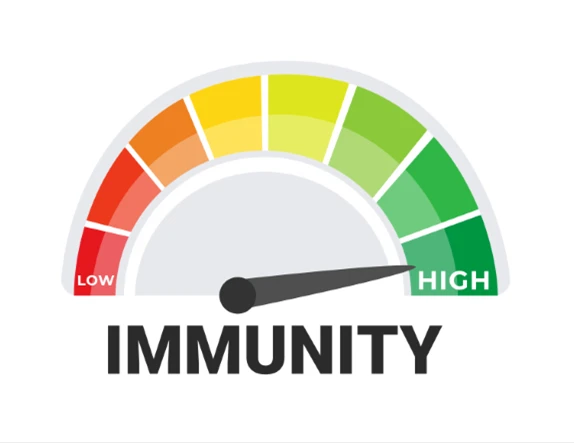Authored by Terrence Shenfield MS, RRT-ACCS, RPFT, NPS, AE-C
Quality sleep is often overlooked in the grand scheme of health and wellness. However, research consistently shows the importance of sleep for immunity and overall well-being. For individuals aiming to optimize their health, understanding the connection between sleep and the immune system is a game-changer. This blog dives into how sleep affects immunity and offers practical steps to help you rest better and boost immunity with better sleep.
Why Sleep Matters for Immunity
When you sleep, your body takes the time to repair and regenerate. It bolsters your immune defenses by enhancing the production of infection-fighting cells and proteins, such as cytokines. Simply put, your body’s ability to fend off illness diminishes without adequate rest.
Research published in Nature Reviews Immunology demonstrates the significant role of sleep in regulating immune responses. People who consistently skimp on sleep are not just more vulnerable to colds and infections but may also struggle with slower recovery times. This underscores the importance of sleep for immunity and staying healthy overall.
How Sleep Affects Immunity
There’s a profound relationship between how sleep affects immunity and ongoing health outcomes. Let's break it down further.
1. Pro-inflammatory Recovery
During deep sleep (slow-wave sleep), your immune system releases proteins called cytokines. These cytokines target infection and inflammation. Insufficient sleep reduces cytokine production, leaving you more susceptible to illness.
2. Antibody Formation
Sleep is critical for forming immune memory. When you sleep, the immune system absorbs and processes information about bacteria or viruses you may encounter, strengthening its ability to fight them off in the future.
3. Chronic Sleep Deprivation Weakens Immunity
Regular inadequate sleep can suppress the immune system significantly, increasing the risks of chronic diseases, such as diabetes and cardiovascular issues. Studies also link sleep deprivation to increased stress levels, which can harm immunity further.
Learn more about immune function benefits and natural ways to strengthen it by visiting ATECAM’s Immune Resources.
Tips to Boost Immunity with Better Sleep
Understanding the connection between sleep and the immune system empowers you to take actionable steps toward better health. Here’s how to optimize your sleep to boost immunity with better sleep.
1. Set a Consistent Sleep Schedule
Your body thrives on routine. Go to bed and wake up at the same time each day, even on weekends. This consistency helps regulate your body’s internal clock, promoting deeper rest cycles.
2. Optimize Your Sleep Environment
Turn your bedroom into a sanctuary for sleep. Ensure it’s dark, quiet, and set to a cool temperature. Consider blackout curtains, sound machines, or comfortable bedding to minimize disruptions.
3. Limit Screen Time Before Bed
The blue light from screens suppresses melatonin production, a hormone essential for sleep. Limit exposure to digital devices at least an hour before bedtime.
4. Mind Your Diet
Avoid heavy meals or caffeine close to bedtime. Instead, opt for light, healthy snacks that promote restful sleep. Foods rich in magnesium, such as almonds or bananas, can be particularly beneficial.
5. Practice Relaxation Techniques
Techniques such as meditation, deep breathing, or yoga can help reduce stress and prepare your mind and body for rest.
6. Exercise Regularly
Physical activity during the day promotes better-quality sleep at night. However, refrain from vigorous exercise close to bedtime, as it can overstimulate your body.
For more tips on supporting your overall immunity, browse ATECAM’s Health Knowledge Center.
The Role of Sleep in Preventative Health
Adopting a proactive approach toward sleep and immunity can improve your overall quality of life. Quality sleep not only bolsters defenses against infections but is integral in managing chronic conditions. If you’ve been compromising your sleep, there’s no better time to revisit your habits and nurture both your rest and immunity.
Investing in your health doesn’t mean tackling it all at once. Gradual changes, like improving your sleep hygiene, have long-term effects. Explore more tools and supplements to support immunity at ATECAM.
References
- Besedovsky, L., Lange, T., & Born, J. (2012). Sleep and immune function. Pflugers Archiv - European Journal of Physiology.
- Irwin, M. R. (2015). Why sleep is essential for health. Medscape Pulmonary Medicine.
- Opp, M. R., & Krueger, J. M. (2015). Sleep and immunity. Neuroimmunomodulation.
- Prather, A. A., & Leung, C. W. (2016). Association of insufficient sleep with markers of chronic inflammation and chronic disease. JAMA Internal Medicine.
- ATECAM Health Resources. (n.d.). Immune System Functioning and Better Sleep. ATECAM.



